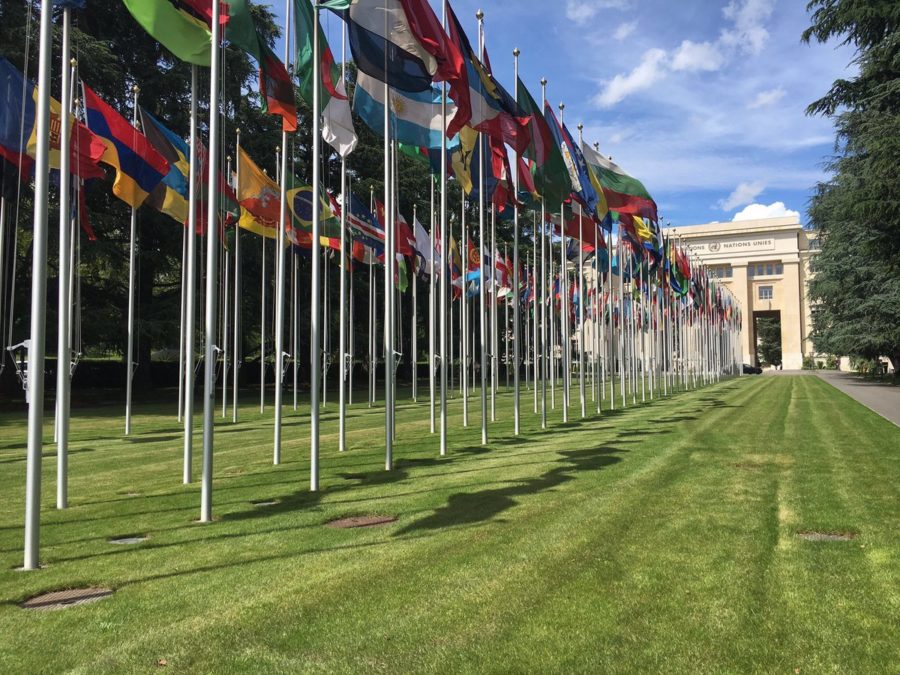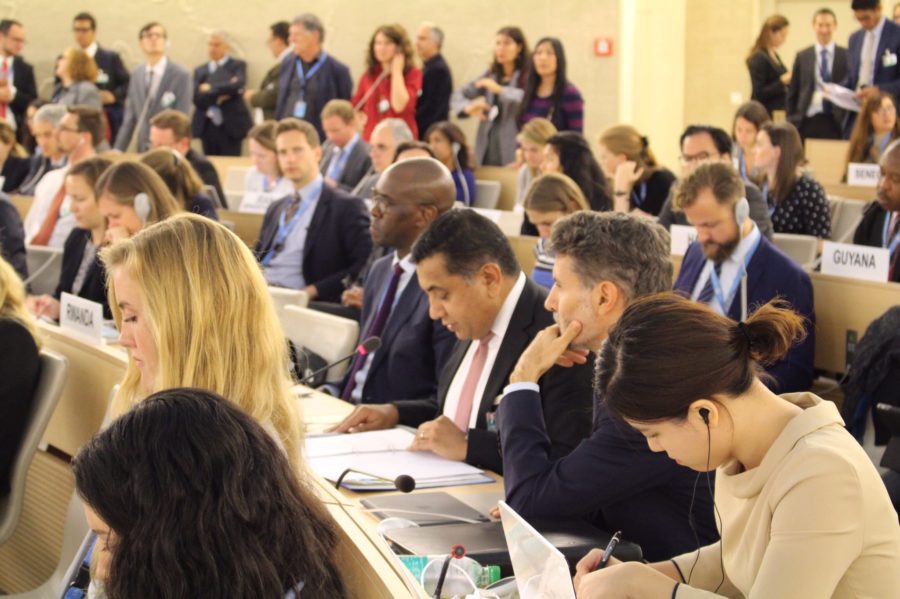18th September 2017 Geneva, Switzerland
Uniting Against Slavery

The seasons change fast in Switzerland though nothing quite takes the shine off a summer break like a week holed up in UN meetings. Once they begin, life becomes a strange combination of rapid high energy bursts of darting about, mixed with prolonged bouts of repetitive drudgery. Spending hours arguing over the wording of resolutions is sapping on the soul, and among the flotsam that washes up from UN meetings it can be difficult to find things that actually bring benefit to the outside world. But if you look hard enough, there are treasures to found.
When the Council began life back in June 2006, there was no dedicated attention to the issue of modern slavery. International treaties against slavery have been around since the time of the League of Nations, but unlike today’s human rights conventions, those treaties did not create any expert committees to monitor whether states were meeting their obligations. Slavery was considered too sensitive and remained long neglected under the Council’s predecessor – the Commission on Human Rights -, with discussions buried in an obscure subsidiary body of a subsidiary body, as only the UN knows how. When a group of states set up a Special Rapporteur on trafficking in persons in 2004 this provided a partial response, but slavery has many other components and NGOs, led by Anti-Slavery International, continued to call for a dedicated UN expert on the topic.
The UK took up this call and created the UN’s Special Rapporteur on ‘Contemporary Forms of Slavery’ as the first new mandate of the Human Rights Council in 2007, coinciding with the 200th anniversary of the UK’s abolition of the trans-Atlantic slave trade. Under the leadership of Gulnara Shahinian from Armenia and now Urmila Bhoola from South Africa, the Rapporteurs have mobilised much greater international attention to the issue of modern slavery and worked constructively with many countries. Mauritania for whom slavery is a pressing and prevalent issue, has been engaging ith the Rapporteur since 2009, while the likes of El Salvador , Lebanon, Romania and Ghana have used visits by the Rapporteur to better confront their different slavery challenges.
Last week the UK’s Minister for human rights and the United Nations, Lord Ahmad of Wimbledon, used his first visit to the Council to discuss modern slavery with the Special Rapporteur, other experts and interested Ambassadors. Among those present was Ambassador Stevens from Sierra Leone, herself a direct descendant of slaves brought to her country, who spoke movingly about her firm commitment to improving the UN response. The Special Rapporteur and others praised the UK’s leadership over recent years, especially our willingness to recognise the scale of the problem in the UK – with an estimated 10 00 to 13 000 victims, as well as the institutions and legislation we have put in place.

The global scale of modern slavery is massive and each new international estimate comes up with a higher figure, as methods to establish data improve. The human costs are enormous as are the financial ones, with annual illegal profits estimated at $150 billion. Much, much more needs to be done, but there are encouraging signs that the international response is improving. Modern slavery is a target for the UN Sustainable Development Goals; it is the focus of a new ILO International Protocol; and global partnership, under the banner of Alliance 8.7, is stepping up action.
Combating slavery now sits at the top of the UK’s international human rights priorities. On 19 September British Prime Minister Theresa May will use her visit to the UN General Assembly to convene world leaders willing to demonstrate political leadership on the issue. And Alliance 8.7 will launch new global estimates on modern slavery and child labour, bringing in the support of business and NGOs. Both events will seek to build momentum behind a Call to Action setting out national and international steps to end modern slavery, forced labour, child labour and human trafficking.
Over the last 10 years there has been a paradigm shift in the global recognition of the scale of modern slavery and the number of states who deny outright that slavery exists is falling. There’s no doubt that the UN Special Rapporteur has played a key role in sensitising the international community. Let’s hope that those that have so far refused the Special Rapporteur’s requests to visit will realise how much they have to gain by admitting that they, like every other state in the world, have a slavery problem. Victims of slavery, wherever they are, deserve that as an absolute minimum.